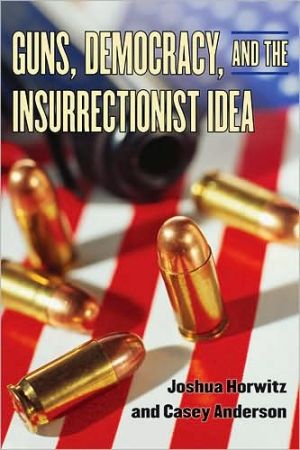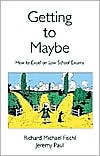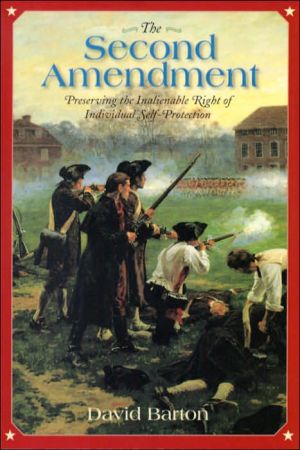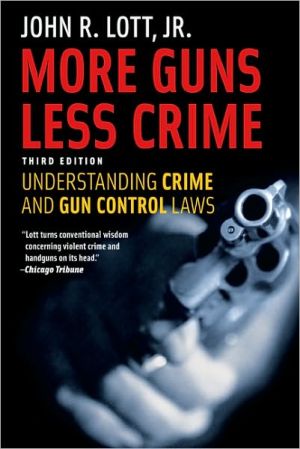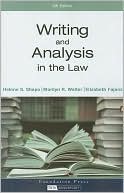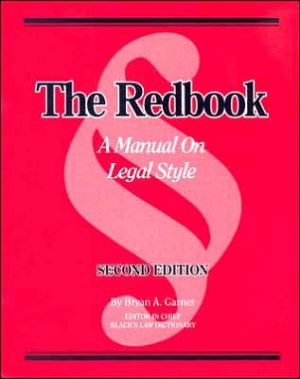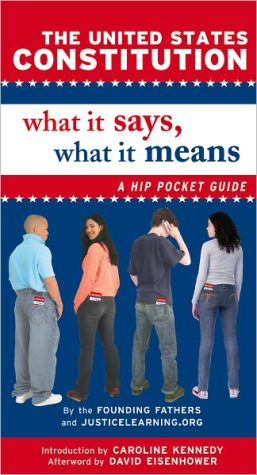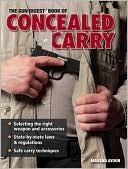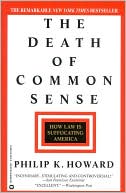Guns, Democracy, and the Insurrectionist Idea
When gun enthusiasts talk about constitutional liberties guaranteed by the Second Amendment, they are referring to freedom in a general sense, but they also have something more specific in mind-freedom from government oppression. They argue that the only way to keep federal authority in check is to arm individual citizens who can, if necessary, defend themselves from an aggressive government. In the past decade, this view of the proper relationship between government and individual rights and...
Search in google:
Does the gun lobby threaten the democratic institutions safeguarding individual liberty in America?
GUNS, DEMOCRACY, AND THE INSURRECTIONIST IDEA\ \ By Joshua Horwitz Casey Anderson \ THE UNIVERSITY OF MICHIGAN PRESS\ Copyright © 2009 University of Michigan\ All right reserved.\ ISBN: 978-0-472-11572-3 \ \ \ Chapter One\ WHAT IS THE INSURRECTIONIST IDEA? \ Insurrectionist is not a synonym for gun owner. Most gun owners do not belong to organizations that support-or whose leaders support-Insurrectionism. The 4.3 million members claimed by the National Rifle Association (NRA) make it one of the nation's largest membership organizations, but the United States is home to an estimated 80 million gun owners. Even within the NRA, many members perceive it as a service provider-that is, they sign up to take advantage of discounted insurance or hunting gear and ignore its political views. Some other gun groups, such as Gun Owners of America (GOA), position themselves to the right of the NRA, claiming that they are more uncompromising in their opposition to regulation of firearms. The members of these groups join because of the politics. Gun Owners of America would never be confused with a member-services organization. In fact, GOA offers its members little beyond repeated exhortations to send in another check to beat back the threat of gun control.\ Americans have different reasons for-and attach different meanings to-gun ownership. Some people use guns forhunting and other recreational activities such as target shooting or collecting. Others (who might best be called the "self-defenders") acquire guns to protect themselves or their families from crime. Nobody can say with certainty how many people own guns to protect themselves from the government. Of course, many if not most gun owners buy firearms for more than one purpose. The major gun groups preach Insurrectionism, teaching members and nonmembers alike that they should not trust the government and should get ready to resist it with guns. Recent public opinion research shows that many gun owners have accepted the Insurrectionist message and see resistance to government as at least one good reason for owning a gun.\ The core of the Insurrectionist idea is its shibboleth that unrestricted access to guns of every kind is an essential element of political freedom. Insurrectionists see the government as the enemy and condemn any and all gun regulation as a government plot to monitor gun ownership (and presumably to lay the groundwork for confiscation in the event of a political crisis). One of the leading Insurrectionist theorists, David Kopel, vividly sums up the Insurrectionist animus toward gun registration:\ It is improper to require that people possessing constitutionally protected objects register themselves with the government, especially when the benefits of registration are so trivial. The Supreme Court has ruled that the First Amendment prohibits the government from registering purchasers of newspapers and magazines, even of foreign Communist propaganda. The same principle should apply to the Second Amendment: the tools of political dissent should be privately owned and unregistered.\ Nelson Lund, one of the leading Insurrectionists in academia, posits that the Constitution establishes an individual right to bear arms to protect against federal tyranny: "An armed populace-even if it could not serve to deter tyranny as effectively as a legal prohibition against federal standing armies-would still constitute a highly significant obstacle to the most serious kinds of governmental oppression." So Lund believes that the government, state or federal, is prohibited from limiting civilian access to almost any kind of weapons, including "grenades and bazookas," and that laws banning assault weapons or the carrying of concealed weapons are unconstitutional.\ The late Bill Bridgewater, former executive director of the Alliance of Stocking Gun Dealers, described in a widely circulated essay how American citizens could wage a guerrilla war against the U.S. government:\ One of these days a truly charismatic individual is going to walk out of the heartland of America and point out that the Declaration of Independence has never been repealed and that it "requires" all citizens to rise up against an oppressive government. With the current attitude toward our government and the people who populate it, a massive groundswell of support for throwing the current crop to the dogs and starting over again might not be so difficult.\ Bridgewater noted that the North Vietnamese, using as their model the tactics of America's war for independence, humbled the greatest military in the world. If the North Vietnamese could do it, the argument goes, American citizens-large numbers of whom already own sophisticated firearms-could succeed. Bridgewater did not live to see it, but the effort to pacify Iraq is a good reminder that even the most capable military forces face serious difficulties when confronted with the tactics of guerrilla warfare.\ Bridgewater's essay, originally published in the Bullet Trap in 1994, is still making its way around the Internet. In 2006, it was posted on LizMichael.com, a site with the somewhat immodest motto "Political activism for the liberation of the world" that includes a series of articles citing Lund's work. By itself, the site is not particularly significant, but the ideas it promotes are staples of the strain of right-wing populism that has become a core element of contemporary "conservative" politics. It often marries antigovernment ideology to gun rights absolutism: Widespread private ownership of firearms is the ultimate guarantor of liberty. All gun control is an infringement of rights reserved for the people by virtue of our history. Government is the enemy. Our founding fathers believed that the individual's personal right to armaments as a check on overbearing government was essential to the protection of freedom and democracy. This idea was true then, and it is true today.\ Unsurprisingly, the NRA and its ideological fellow travelers have tried to legitimize Insurrectionism to rationalize their opposition to even the most trivial gun regulations. Wayne LaPierre, the NRA's top executive, says, "The people have the right, must have the right, to take whatever measures necessary, including force, to abolish oppressive government." In 1998, U.S. senator (and later attorney general) John Ashcroft somewhat awkwardly argued, "A citizenry armed with the right both to possess firearms and to speak freely is less likely to fall victim to a tyrannical central government than a citizenry that is disarmed from criticizing government or defending themselves."\ The Insurrectionist objection to the regulation of firearms may extend to state government, even though the reservation of authority to state-level officials in principle provides another check on overreaching centralized power. The Insurrectionist mind-set took on comic effect when one of the authors witnessed the spectacle of an aide to a Virginia state legislator objecting to restrictions on firearms on the grounds that he might need a gun to resist oppression by his employer. Asked by a lobbyist whether the aide's boss might vote for closing the loophole that allows people to buy guns without background checks at gun shows, the aide responded that he would not even pose the question to the legislator. The aide explained that because a background check would alert the government when a gun is purchased, he was uncomfortable with the process. "I need my gun to protect against the government," he said. The lobbyist reminded the aide that as a legislative assistant, he is an agent of the government he professed to fear. His response, relying perhaps on advice from his accountant, "I am not the government because I am a contractor." Leaving aside the absurdity of the objection that requiring background checks on firearm sales at gun shows would prevent law-abiding citizens from buying guns (when three of the five states with the largest number of gun shows require background checks and all sales at gun stores already require the checks), the notion that an employee of one of the oldest, most conservative legislative chambers in the world thinks that he personally needs a gun to protect himself from that legislature is a testament to how tightly some gun rights advocates have embraced Insurrectionist theory.\ Until recently, few Americans not involved in private militias or other right-wing fringe groups that make up the "patriot" movement took seriously the Insurrectionist idea. Despite some backpedaling in the wake of Timothy McVeigh's use of Insurrectionist justifications for the bombing of the Oklahoma City federal building, the major gun rights organizations have become more aggressive in advancing an Insurrectionist rationale for an expansive view of gun rights. The propaganda used by these outfits exploits the habitual American distrust of government, but the extent of uncritical acceptance of Insurrectionist interpretations of the Second Amendment is nevertheless striking. For example, Libertarian luminary Ron Paul, who raised $34.5 million in his bid for the 2008 Republican presidential nomination (which was more than fellow Republican Fred Thompson and only slightly less than Democrat John Edwards, both thought to be in the top tier of candidates at the outset of the race), stated on his campaign Web site that a "gun in the hand of a law-abiding citizen serves as a very real, very important deterrent to an arrogant and aggressive government. Guns in the hands of the bureaucrats do the opposite. The founders of this country fully understood this fact, it's a shame our generation has ignored it." Mike Huckabee, who won 257 electoral votes in the 2008 Republican primaries, responded to a question at a town hall meeting in New Hampshire with the answer that the Second Amendment "gives me that last line of defense against tyranny, even the tyranny of my own government."\ Together with self-defense against violent crime, the imagined need to reserve the option to use force against the government is a central justification invoked by gun rights advocates in opposing legislation or regulation that would place any restriction, no matter how mild, on access to firearms. The philosophical, legal, and practical dimensions of the use of firearms for self-defense are beyond the scope of this book, but the political and policy agenda of gun rights groups goes well beyond protecting the right to self-defense against violent crime. Most kinds of gun control-such as requirements for background checks on gun purchasers-that are designed to prevent the direct or indirect sale of firearms to criminals do not diminish a law-abiding citizen's ability to keep and use a gun for self-defense. A gun that has been registered is no less effective than an unregistered firearm when aimed at a criminal. In fact, efforts to keep guns away from criminals (e.g., by applying the background-check requirement to all gun show sales or requiring owners to register their firearms) reduce the chances that the victim of a crime will be confronted by superior firepower when wielding a gun in self-defense. In addition, many firearms are ill suited for defensive use in the home or in a vehicle. A simple revolver is more useful and safer for home defense or personal protection than an AR-15, the semiautomatic version of the M-16 used by the U.S. military.\ Moreover, the claim that private ownership of firearms improves public safety is an empirical question. Academic analyses of private firearm ownership in terms of self-defense show that gun possession and availability actually increase the risk of death and injury. Conversely, the claim that unfettered access to firearms can prevent government tyranny in the United States without fostering anarchy bears little scrutiny by serious thinkers and academics and cannot be tested by experimental methods. As a result, it is difficult to put the Insurrectionist idea to the test of real-world practice in the absence of a cataclysmic breakdown of the American system of government as we know it.\ The Insurrectionist slant on history predicts that government unchecked by well-armed citizens will eventually murder its citizens, enslave them, or allow others to do so. Mistrusting even the strongest democratic institutions, Insurrectionists argue that the only safeguard that will prevent totalitarianism over the long run is a well-armed populace. But the Insurrectionist telling of history is a myth designed to perpetuate the needs of a gun rights industry (of which firearms makers and dealers are only a small part) headed by the NRA but comprised of an array of allied groups and entrepreneurs that flourish by bombarding gun owners with propaganda designed to convince them of an ever-present threat to their guns and their freedom in the form of a government run amok. Only by arming themselves to the teeth-while sending in their checks to the major gun rights groups and supporting the conservative movement's political goals-can gun owners head off this danger.\ The myth that government is the enemy of freedom and that only armed citizens protect freedom, as we document repeatedly in this volume, has been concocted by twisting the facts of historical events and in particular by popularizing revisionist accounts of three episodes from the past that are frequently used to buttress support for the Insurrectionist delusion: the American Revolution and the founding of the American republic, the denial of civil rights to African Americans after the Civil War, and the rise of the Third Reich under Adolf Hitler. The Insurrectionist interpretation of these events is that strong government is always the gravest threat to human freedom and that private ownership of firearms is the only hope of keeping this threat in check.\ From the founding of the United States, the Insurrectionists draw the lesson that guns were so important to American freedom that the framers enshrined in our Constitution the right of every individual to own guns to ward off government tyranny. From the Civil War and Reconstruction, the Insurrectionists conclude that the government's disarming of the former slaves guaranteed the continued subjugation of African Americans despite the introduction of formal legal equality for people of all races. In examining the rise of the Nazis, the Insurrectionists argue that if the Weimar Republic had dispensed with gun control, Hitler would not have been able to exterminate 6 million Jews and millions of other people. In the Insurrectionist account of history, these three examples offer cautionary tales that illustrate the immense danger posed by gun control schemes. For good measure, Insurrectionist ideologues have recently added to their list of historical illustrations of the folly of gun control, including the argument that in the twentieth century, governments caused the deaths of 114 million people through a combination of gun control and genocide and the claim that the disarming of law-abiding citizens was in large measure responsible for the breakdown of order in New Orleans in the aftermath of Hurricane Katrina.\ Insurrectionists see anonymous gun ownership as a check on government tyranny, but they are vague about who has the right to decide the moment when the government has become tyrannical and should be resisted with private armed force. Some Insurrectionist theorists, such as Kopel, have qualified their endorsement of revolution led by armed citizens by noting that a few folks sitting around their living room can't invoke the Second Amendment to justify taking up arms against the government. Yet even Kopel unequivocally states that a majority of citizens need not support the use of violence to legitimate armed resistance. For some other Insurrectionists, taking up arms against the government is a personal decision. Insurrectionists may disagree among themselves about exactly what triggers the right to take up arms against the U.S. government, but they share the view that armed resistance to tyrannical government is a legitimate response to a policy or action, even when that policy or action has been carried out by democratically elected representatives constrained by an independent judiciary with the power to vindicate individual rights against the state.\ (Continues...)\ \ \ \ \ Excerpted from GUNS, DEMOCRACY, AND THE INSURRECTIONIST IDEA by Joshua Horwitz Casey Anderson Copyright © 2009 by University of Michigan . Excerpted by permission.\ All rights reserved. No part of this excerpt may be reproduced or reprinted without permission in writing from the publisher.\ Excerpts are provided by Dial-A-Book Inc. solely for the personal use of visitors to this web site. \ \
Introduction 1Part 1 The InsurrectionistsChapter 1 What Is the Insurrectionist Idea? 13Chapter 2 What Is the Insurrectionist Agenda? 29Chapter 3 Who Are the Insurrectionists? 35The NRA 35Allied Gun Groups 46The Gun Show Circuit 50The Gun Rights Grassroots and the Blogosphere 55Liberal Law Professors and D.C. v. Heller 64Dissenters and Enforcement of the Insurrectionist Orthodoxy 71Part 2 History According to the InsurrectionistsChapter 4 The Founding 79Guns and the Revolution 82The Articles of Confederation 91The Constitution 96The Founders and Insurrection 110Chapter 5 The Civil War and Reconstruction 118The Civil War 118Reconstruction and "Redemption" 121Chapter 6 The Rise of the Third Reich 137German Gun Laws and the Holocaust 137Gun Control and the Nazis 139A Dangerously Weak State 142Overwhelming Private Violence 148Democracies and Genocide 155Part 3 Insurrectionism, Democracy, and FreedomChapter 7 The Meaning of Freedom 159Chapter 8 One Gun, One Vote? 163Chapter 9 Democracy and the Monopoly on Force 171Chapter 10 Insurrectionism and Individual Rights 185Property Rights and Guns at Work 186The Right of Redress and Immunity for the Firearm Industry 195Due Process and "Shoot First" Laws 208Chapter 11 Effective Democratic Institutions 215Conclusion 221Notes 229Bibliography 251Index 261
